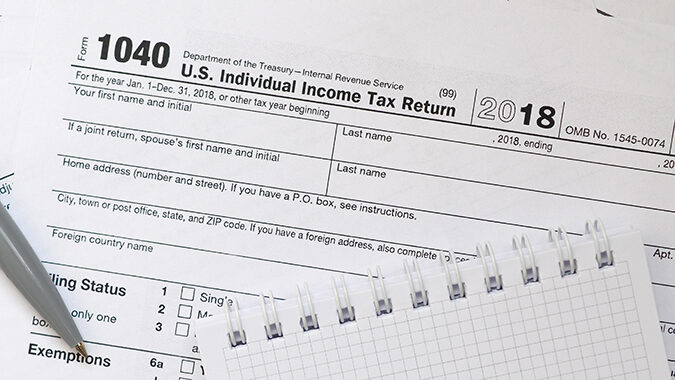The IRS says an estimated 39,000 New Jersey taxpayers who did not file their federal tax returns in 2018 are owed an average $872 each, but their window of opportunity to claim that money closes on April 18.
Nationwide, there are almost $1.5 billion in unclaimed refunds awaiting an estimated 1.5 million taxpayers who did not file a 2018 Form 1040, the IRS says. The law provides a three-year window of opportunity to claim a tax refund before the money becomes the property of the U.S. Treasury.
“The IRS wants to help people who are due refunds but haven’t filed their 2018 tax returns yet,” IRS Commissioner Chuck Rettig said. “We want to help people get these refunds, but they need to file a 2018 tax return before this critical deadline.”
The IRS said taxpayers seeking a 2018 tax refund may have their checks held if they have also not filed tax returns for 2019 and 2020. In addition, the refund will be applied to any amounts still owed to the IRS or a state tax agency and may be used to offset unpaid child support or past due federal debts, such as student loans.
Tax year 2018 returns must be filed with the IRS center listed on the last page of the current Form 1040 instructions. Current and prior year tax forms (such as the tax year 2018 Form 1040, 1040-A and 1040-EZ) and instructions are available on the IRS.gov Forms and Publications page or by calling toll-free 800-TAX-FORM. However, taxpayers can e-file tax year 2019 and later returns.
Taxpayers who are missing Forms W-2, 1098, 1099 or 5498 for the years 2018, 2019 or 2020 should request copies from their employer, bank or other payer. Taxpayers who are unable to get missing forms from their employer or other payer can order a free wage and income transcript at IRS.gov using the Get Transcript Online tool. Alternatively, they can file Form 4506-T to request a wage and income transcript.
A wage and income transcript shows data from information returns received by the IRS, such as Forms W-2, 1098, 1099, Form 5498 and IRA contribution information. Taxpayers can use the information from the transcript to file their tax return.

